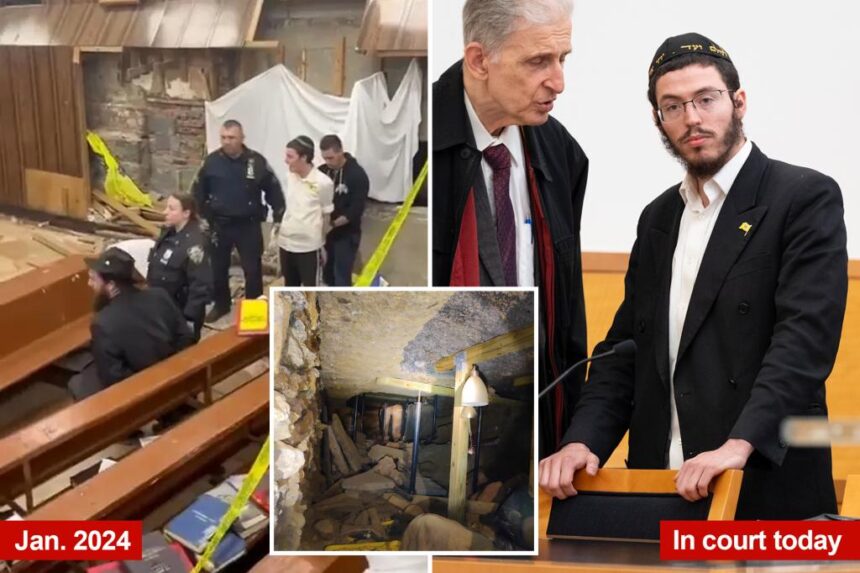A group of Hasidic Jewish students who made headlines for digging a secret tunnel under a Brooklyn synagogue have rejected plea deals from prosecutors, stating they would rather go to prison than be banned from the historic temple.
Thirteen young men, including rabbinical students, were charged for their involvement in the hidden tunnel, which was discovered in January and caused a riot. They were offered a deal by the Brooklyn District Attorney’s Office that would prohibit them from entering the Crown Heights temple for three years, a proposition most of them scoffed at.
Yaakov Rothchild, one of the defendants facing felony charges of second-degree criminal mischief, expressed that being banned from 770 Eastern Parkway, the headquarters of the Chabad-Lubavitch movement, was a worse punishment than jail.
The defendants, who could face trial in January if no agreement is reached, were charged with obstruction of justice for refusing to leave the hole they had created in the wall of the synagogue despite police orders.
While the prosecution offered a plea deal that would reduce the charges to fourth-degree criminal mischief, a misdemeanor, in exchange for community service or restitution, the defendants’ attorneys deemed the deal unacceptable during a hearing in Brooklyn Supreme Court.
Assistant District Attorney Frank Longobardi argued that a ban from the synagogue was necessary, citing the defendants’ behavior at their arraignments in April where they displayed signs referencing the tunnel-digging incident.
Judge Adam Perlmutter expressed concerns about the stalemate between the two sides and warned the defendants that any further attempts to dig tunnels would result in criminal contempt charges and potential jail time.
Only one defendant, Menachem Molekandov, is considering accepting the prosecution’s deal, pending clarification on the type of community service he would need to perform outside of religious organizations.
Chabad-Lubavitch, known as 770, holds significant religious importance for the community, and the defendants’ actions were seen as disrespectful and dangerous.
The group of students used shovels to dig the secret tunnel during the pandemic, as they believed the synagogue needed expansion. Their actions caused a commotion when they attempted to resist police intervention and protect their excavation sites from being filled with cement.
The synagogue, a place of study and worship for followers of Rabbi Menachem Mendel Schneerson, is highly revered by the community. It holds a special significance as a place of learning, prayer, and connection with their spiritual leader.
Yerachmiel Blumenfeld emphasized the importance of the synagogue as the “House of Rebbe” and a place that holds greater meaning than any other temple for the community.
All defendants are scheduled to appear in court on November 14 for further proceedings.
Please rewrite this sentence.
Source link





